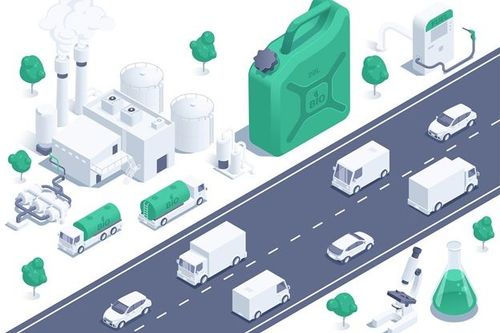USTR opens investigation into Brazil’s unfair ethanol trade practices
By Erin Kreuger
The Office of the U.S. Trade Representative on July 15 initiated an investigation into Brazil’s unfair trading practices, including those impacting ethanol market access. Growth Energy and the Renewable Fuels Association are welcoming the investigation.
The investigation has been launched under Section 301 of the Trade Act of 1974, which is designed to address unfair foreign practices affecting U.S. commerce. A section 301 investigation can be used to respond to unjustifiable, unreasonable, or discriminatory foreign government practices that burden or restrict U.S. commerce.
According to USTR, the Brazil investigation will seek to determine whether acts, policies and practices of the government of Brazil related to digital trade and electronic payment services; unfair, preferential tariffs; anti-corruption interference; intellectual property protection; ethanol market access; and illegal deforestation are unreasonable or discriminatory and burden or restrict U.S. commerce.
Regarding ethanol, the USTR said “Brazil has walked away from its willingness to provide virtually duty-free treatment for U.S. ethanol and instead now applies a substantially higher tariff on U.S. ethanol exports.”
In a Federal Register notice, USTR explains that the U.S. suffers from higher tariffs on ethanol by Brazil and from imbalanced trade resulting from Brazil’s decision to abandon the reciprocal, virtually duty-free treatment that promoted the development of industries in both countries.
The U.S. and Brazil are the world’s two largest ethanol producers. The U.S. produced an estimated 16.1 billion gallons of ethanol last year, while Brazil produced nearly 8.8 billion gallons. Together, the two countries produced an estimated 80% of the world’s ethanol in 2024. Brazil primarily produces ethanol from sugarcane, but the country’s corn ethanol production has been growing sharply since 2017.
Within the notice, USTR explains that between 2010 and 2017, the U.S. and Brazil each took action to establish virtually duty-free bilateral trade of ethanol. Beginning in September 2017, however, Brazil abandoned this approach in a way that has created particular disadvantages for the U.S. “Since then, U.S. ethanol producers have, at times, faced steep and unfair Brazilian import tariffs on their products,” the USTR said. Brazil’s tariff rates on U.S. ethanol have fluctuated since 2017, but have been set at 18% since Jan. 1, 2024.

“These tariff rates have had demonstrable impacts on U.S. ethanol exports to Brazil,” said USTR in the notice. “U.S. ethanol exports to Brazil peaked at $761 million in 2018, but fell to $140,000 in 2023, and were $53 million in 2024, suggesting that U.S. ethanol producers are at a significant disadvantage under the current tariff system.”
Growth Energy welcomed news the USTR is taking action with regard to Brazil’s unfair trade practices. “Today’s action by USTR is a sign that the old days of Brazil enjoying unfettered access to the U.S. ethanol market while unfairly putting a tariff on American ethanol imports could soon come to an end. On behalf of U.S. ethanol producers across the heartland, we say it’s about time,” said Emily Skor, CEO of Growth Energy. “We applaud USTR for taking this concrete step to dig further into Brazil’s unfair treatment of American ethanol and hope that it ultimately leads to a more level playing field for U.S. farmers and biofuel producers.”
The Renewable Fuels Association has also spoken out in support of the investigation. “We applaud the Trump administration for this important action,” said Geoff Cooper, president and CEO of the RFA. “For almost a decade now, we have spent precious time and resources fighting back against an unfair and unjustified tariff regime imposed by Brazil’s government on U.S. ethanol imports. What’s more ironic is that these tariff barriers have been erected against U.S. ethanol imports while our country has openly accepted—and even encouraged and incentivized—ethanol imports from Brazil.”
USTR will hold a public hearing in connection with the Brazil investigation on Sept. 3. Those interested in participating are encouraged to submit written comments, requests to appear at the hearing and a summary of testimony by Aug. 18. The agency will open a docket for submission of written comments on July 17.
This article has been republished from The Ethanol Producer Magazine.

